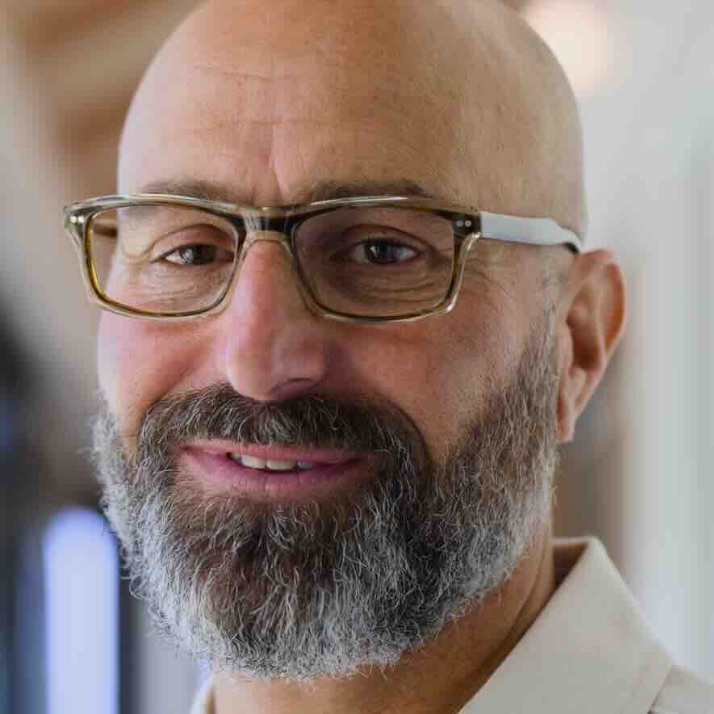Starting Your Sex Addiction Therapy Journey in Raleigh
Starting your Sex Addiction therapy journey in Raleigh begins with exploring MiResource’s directory to quickly see qualified clinicians across the Raleigh–Durham area. Use filters to pinpoint therapists with approaches like CBT, trauma-informed care, or Certified Sex Addiction Therapist (CSAT) credentials, and to sort by in-person or telehealth options close to your neighborhood. You can refine by languages, culturally responsive care, and faith-based or LGBTQ+ affirming practices, helping you find someone who understands your context. Local matching improves accessibility—shorter travel times, familiar community norms, and more flexible scheduling with evening or weekend availability.
MiResource also streamlines the practical details that matter in Raleigh’s busy healthcare landscape. Filter by insurance to see in-network providers, or choose sliding-scale fees if you’re paying out of pocket, and check real-time availability to request appointments faster. The directory’s location and specialty filters help you compare therapists near your campus, workplace, or home, making regular attendance easier. With clear profiles and contact options, MiResource makes it simple to connect with the right local therapist and start consistent, sustainable care.
Mental Health Resources for Sex Addiction in Raleigh
Struggling with compulsive sexual behaviors can impact mental health, relationships, and wellbeing; help is available in Raleigh. If you’re in immediate danger, use the emergency options below. For ongoing support, Raleigh offers public services, peer groups, and clinical care across major health systems and community clinics. You can also use MiResource to find licensed Sex Addiction therapists in Raleigh.
Emergency & Crisis
- 911 — Emergency Services
- 988 Suicide & Crisis Lifeline — call/text 988
- WakeMed Raleigh Campus Emergency Department
- UNC Rex Hospital Emergency Department
- Duke Raleigh Hospital Emergency Department
Public & City Programs
- Wake County Behavioral Health (Crisis, assessment, services)
- UNC Health WakeBrook (24/7 behavioral health/crisis)
- Alliance Health (Managed care/Access line for Wake County)
Nonprofits & Support Groups
- NAMI Wake County (education, support groups)
- DBSA Triangle (mood disorder peer support)
- Sex Addicts Anonymous (SAA) – local meetings directory
- Sexaholics Anonymous (SA) – NC Intergroup
- Sex and Love Addicts Anonymous (SLAA) – Carolinas Intergroup
Health Systems & Universities
- WakeMed Behavioral Health
- UNC Health (Rex/WakeBrook and outpatient services)
- Duke Health (behavioral health services)
- NC State University Counseling Center (students)
Community Clinics/Sliding-Scale
- Advance Community Health (FQHC)
- NeighborHealth Center (FQHC)
- El Futuro (Latinx-focused behavioral health, sliding-scale)
- Monarch (community mental health, Raleigh)
- SouthLight Healthcare (behavioral health & recovery)
Use MiResource to find vetted, licensed Sex Addiction therapists in Raleigh who match your needs, preferences, and insurance.
The Benefits of Seeing a Raleigh-Based Sex Addiction Therapist
Working with a Raleigh-based therapist who specializes in sex addiction offers nuanced cultural insight and practical accessibility that can accelerate progress. A local clinician understands the rhythms of life around NC State and the Village District, the social scene in Glenwood South and Five Points, and the family/work dynamics common in North Hills, Brier Creek, and Downtown. In-person sessions fit seamlessly into daily routines—drop in between classes near Hillsborough Street, schedule a lunch-hour appointment near Moore Square or Fayetteville Street, or stop by after work in Midtown. Commuting is straightforward via I‑40, I‑440, and Capital Boulevard, with GoRaleigh and GoTriangle service for car‑free access, bikeable corridors, and greenways like Rocky Branch and Walnut Creek Trails. Downtown garages (e.g., Moore Square Deck, The Dillon) and plentiful free parking at many medical offices in North Hills and Brier Creek make discreet visits easy.
Local knowledge also means your therapist is connected to trustworthy, nearby supports that complement therapy. You can tap into Raleigh/Cary 12‑step communities through national meeting finders for Sex Addicts Anonymous and Sex and Love Addicts Anonymous, peer groups from NAMI Wake County, and county-backed services like Wake County Behavioral Health resources and crisis access via Alliance Health. For higher‑acuity needs, clinicians can coordinate with WakeBrook behavioral health services on Sunnybrook Road. This community‑embedded approach, grounded in Raleigh’s events and spaces—from Dorothea Dix Park to the Warehouse District—helps integrate recovery into real life while leveraging nearby, reputable supports and convenient transit and parking options.
Understanding Sex Addiction
Sex Addiction is a pattern of compulsive sexual thoughts or behaviors that feel hard to control, often leading to secrecy, shame, and strain on relationships, work, or wellbeing. If you’re exploring help in Raleigh, know that many people experience urges, preoccupation, or risky choices that don’t match their values—and support can help you regain balance.
About Sex Addiction
Sex addiction means feeling stuck in sexual thoughts or behaviors that feel hard to control, even when you want to stop. Common signs include spending a lot of time on sexual activities, hiding behavior, broken trust in relationships, and feeling guilt or distress afterward. It can disrupt work or school, strain relationships, impact finances, and leave you feeling isolated; support is available in Raleigh. For more details, visit our Sex Addiction information page.
How Therapy Can Help with Sex Addiction
A compassionate therapist can help you understand the roots of Sex Addiction, reduce shame, and build healthier habits that restore balance, intimacy, and daily functioning. Evidence-based therapies like Cognitive Behavioral Therapy (CBT), Acceptance and Commitment Therapy (ACT), and motivational interviewing help you identify triggers, strengthen impulse control, and develop practical relapse-prevention skills. Many people also benefit from trauma-informed care and, when needed, couples work to rebuild trust and communication. If you’re ready to take the next step in Raleigh, therapy can empower you to create lasting change and a more satisfying, connected life.
Inside the Sex Addiction Therapy Process
In your first session, we’ll review your history, clarify goals, and create a safety and stabilization plan; ongoing sessions focus on practicing skills, tracking triggers, and adjusting strategies together as your needs evolve. Evidence-based approaches for Sex Addiction include Cognitive Behavioral Therapy (to identify triggers, challenge unhelpful thoughts, and build relapse-prevention routines), Acceptance and Commitment Therapy (to help you respond to urges without acting on them while moving toward your values), and Motivational Interviewing (to strengthen commitment to change), often complemented by mindfulness-based relapse prevention or trauma-informed work when relevant. These methods are tailored to you, integrating individual, couples, or group elements to address secrecy, shame, and relationship repair. Throughout, therapy is a collaborative partnership between you and your therapist in Raleigh, with clear goals, regular feedback, and a pace that feels safe and sustainable.
Common Questions About Sex Addiction Therapy in Raleigh
1) How do I know if I might need Sex Addiction therapy in Raleigh?
If sexual thoughts, urges, or behaviors feel out of control, cause shame, or keep disrupting your work, relationships, or sleep, it may be time to see a Sex Addiction therapist. Struggling to cut back on porn, hookups, or sexting despite repeated promises to yourself is a common sign. You might notice secrecy, risky situations, or using sex to cope with stress or loneliness. If these patterns are affecting daily life in Raleigh, professional support can help you regain balance.
2) What if the first Sex Addiction therapist I see in Raleigh doesn’t feel like the right fit?
It’s normal if the first Sex Addiction therapist you meet in Raleigh isn’t the right fit—therapy works best when you feel safe, understood, and aligned on goals. Many people try a few sessions with different clinicians before finding the right match. You can kindly let a therapist know you’re continuing your search. MiResource makes it easier to find and compare Sex Addiction therapists in Raleigh so you can switch without starting from scratch.
3) Is virtual Sex Addiction therapy as effective as in-person sessions in Raleigh?
Virtual Sex Addiction therapy can be as effective as in-person care for many people, offering privacy and convenience from your home in Raleigh. Online sessions use the same evidence-based approaches and can help with accountability, coping skills, and relapse prevention. Some prefer in-person for the feel of the room or when involving partners or groups, while others engage more consistently online. The best choice is the one you’ll attend regularly and feel comfortable using.
4) What questions should I ask a potential Sex Addiction therapist in Raleigh before starting treatment?
Ask potential Sex Addiction therapists in Raleigh: How much experience do you have treating Sex Addiction, and what approaches do you use (e.g., CBT, trauma-informed care, mindfulness, 12-step integration)? Are you licensed and do you hold any relevant certifications (such as CSAT), and do you work with couples or partners when needed? How do you handle co-occurring issues like anxiety, depression, or substance use, and how will we set goals and measure progress? What are your fees, insurance options, scheduling availability, telehealth offerings, and policies around privacy and communication between sessions?
5) Does Sex Addiction therapy really work, and what kinds of results can I expect in Raleigh?
Yes—Sex Addiction therapy is effective for many people, with research supporting approaches like cognitive behavioral therapy, motivational interviewing, trauma-informed care, and group or couples work. These therapies can reduce compulsive sexual behaviors, improve mood and relationships, and strengthen coping and relapse-prevention skills. Combining therapy with support networks and, when appropriate, medication for co-occurring conditions increases success. Many clients in Raleigh report meaningful, lasting change when they stay engaged and tailor treatment to their needs.













